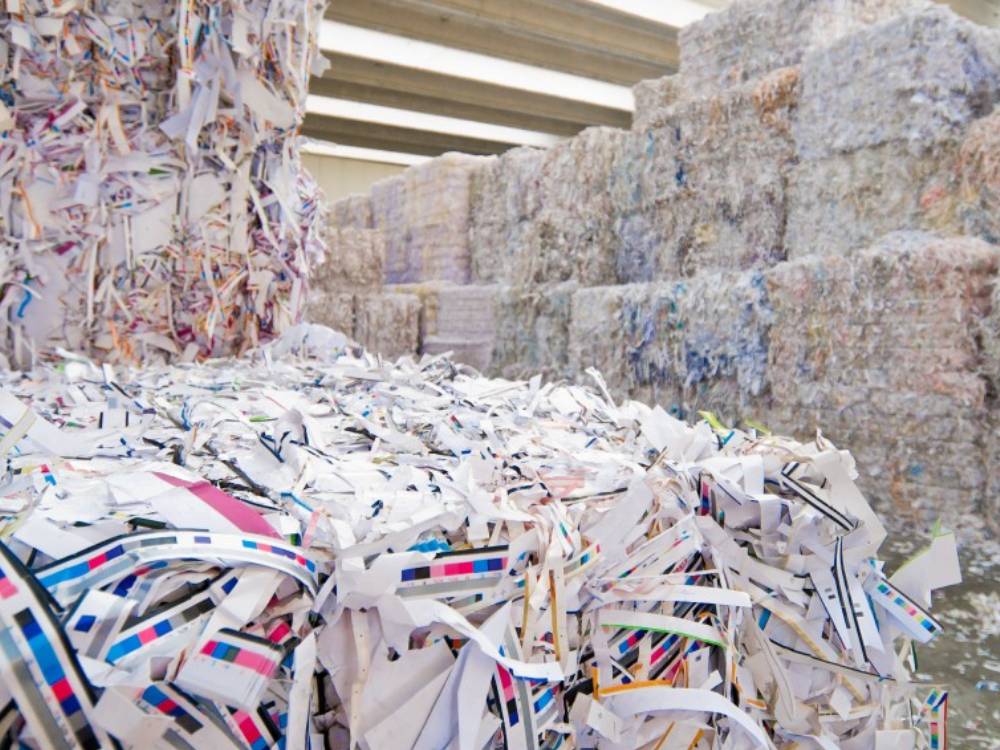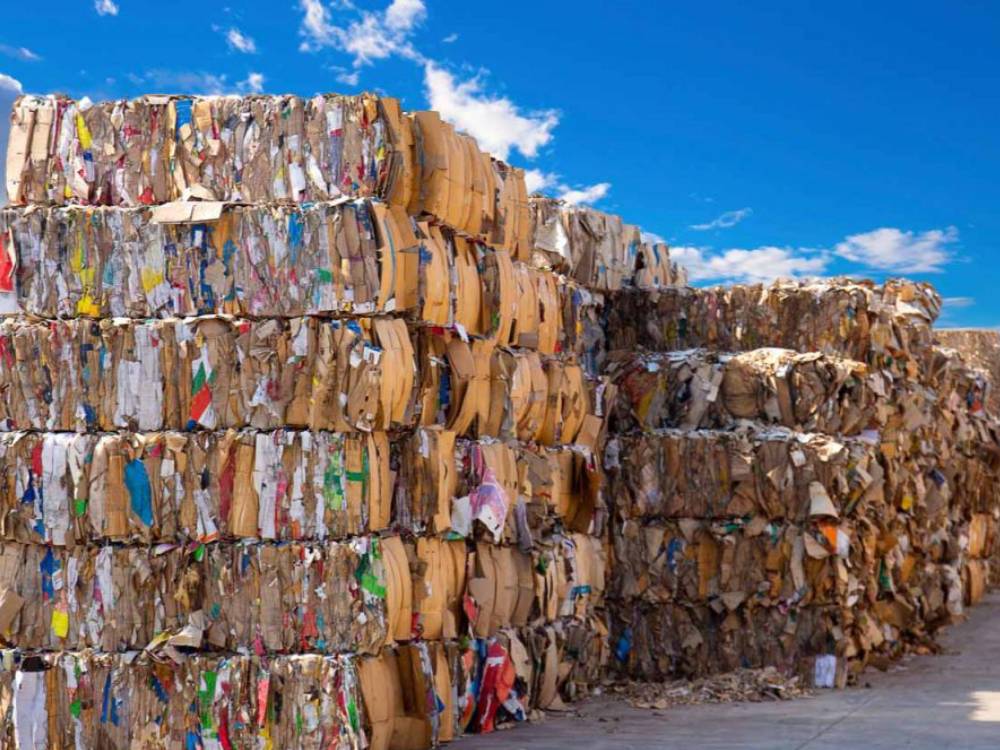







WPR is a critical component of sustainable waste management and resource conservation. Waste paper recycling is the process of converting paper waste into new paper products. It is a key component of the recycling process and helps to reduce the environmental impact of paper production.
At BMNS, we start with the first step in the recycling process i.e. the collection of waste paper. This is done through drop-off centers and business collection services. Different types of paper products are collected like cardboard, and mixed paper. They are compressed into bundles and transported to paper mills.
At paper mills, the waste paper is shredded into small pieces and mixed with water and chemicals to break down the paper fibers. This process creates a slurry or pulp. After several physical and chemical process, the pulp results into fresh paper sheet which is rolled into large reels. The large reels of paper are converted into end products such as printer paper, cardboard boxes, or newspapers. These products are then distributed to retailers and consumers.
Despite a lot of challenges due to market fluctuations due to demand and supply gap of recycled paper that affects the economics of recycling program, BMNS took this challenge by choice. Being sustainable measure into core values, BMNS conserves environment by recycling paper, reduces the need of virgin wood pulp thus conserves forests and biodiversity. Further, recycling diverts paper waste from landfills, reduce methane emissions and conserve landfill space. Paper manufactured from recycled paper is an energy efficient and less water polluting process in comparison to making paper from virgin pulp. Furthermore, recycling creates jobs in collection, sorting and processing it to the industries.
There is No Planet-B” as if we think that once this one is spilled with all kind of anthropogenic waste one can move to another planet, so whatever waste we produce, we have to manage it and that too sustainably. At BMNS, we are committed to fostering circularity in targeted waste streams by advancing the implementation of Extended Producer Responsibility (EPR).
EPR is an effective tool to treat waste as a secondary resource, reintegrating it into the value chain. Its success relies on clarity, transparency, and accountability. The Ministry of Environment, Forest, and Climate Change (MoEFCC), Government of India, along with the Central Pollution Control Board (CPCB) and State Pollution Control Boards (SPCBs), has demonstrated exemplary efficiency in executing EPR across a vast and diverse population and geography—achievements unparalleled on this scale. This success is further amplified through collaboration with relevant stakeholders, including PIBOs (Producers, Importers, and Brand Owners), PWPs (Plastic Waste Processors), ULBs (Urban Local Bodies), SIMPs (Micro and Small Producers, Sellers, Manufacturers and Importers) and others agencies.
At BMNS, we address the challenges associated with plastic waste, e-waste, batteries, and tire waste, offering end-to-end solutions for their sustainable management. Our expertise supports stakeholders such as PIBOs and PWPs in achieving seamless EPR compliance under plastic packaging. Our services include – EPR Registration – Target Management- Compliance Solutions- Credit Transactions.
With these comprehensive solutions, BMNS ensures that sustainability becomes an integral part of waste management practices, enhancing value for clients and the environment alike.